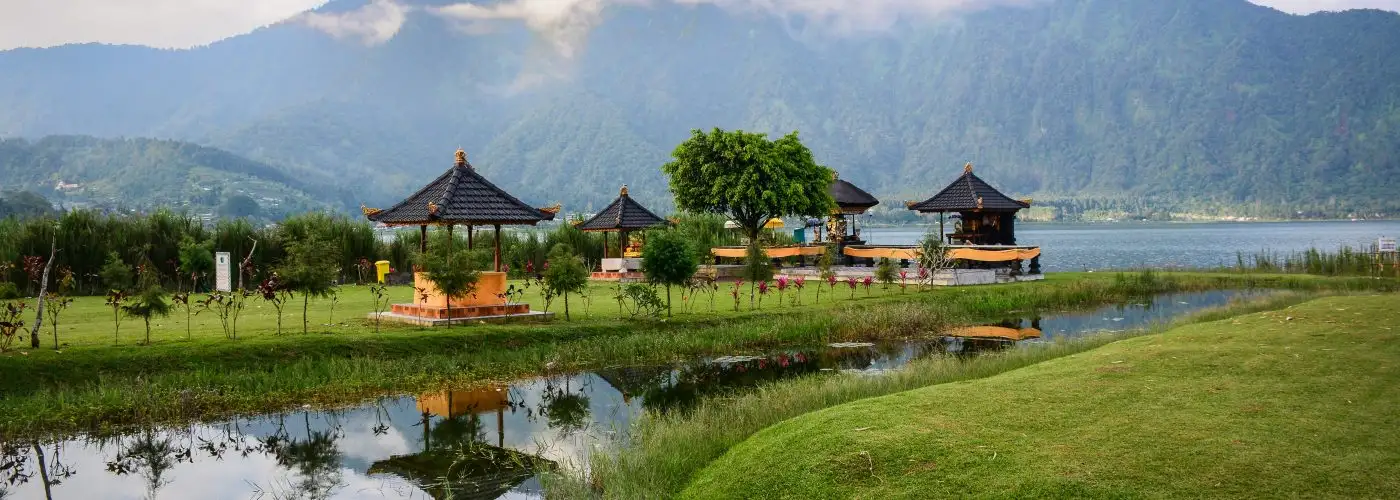A grumbling volcano is ruining more than a few tropical vacations this holiday season.
The Mt. Agung volcano began erupting ash and rock on November 21. Scientists worry that pressure is building within the volcano, indicating a more powerful eruption may be brewing. Denpasar International Airport had closed earlier this week due to the ash plume, but reopened Wednesday when winds shifted the ash away. Airlines rushed to reach the thousands of travelers stranded on the island.
The Australian reports that travelers heading to Bali through the Christmas holidays are being asked to postpone their plans. Beyond the uncertainty of an active and threatening volcano, airlines need to focus on shuttling stranded tourists off the island. Regardless, conditions are unpredictable and extremely fluid, which is not a good scenario for travelers even if the volcano doesn’t get any worse.
Of course, the locals have it much worse. Authorities evacuated much of the area around Mt. Agung, following a separate evacuation earlier this fall when the volcano first showed signs of life. Over 100,000 residents, many of them poor farmers, are at risk of losing their homes and livelihoods.
Bali is a popular tourist destination, but let’s face it: Most of us are not heading to Bali for Christmas. Still, it’s a good opportunity to review your rights if and when this sort of situation impacts your flight.
The legal term for this is force majeure, which translates to “superior force.” This includes anything outside the airline’s control, such as weather, a giant monster attack, and, yes, a volcano. As an example, here is Southwest’s definition of force majeure, taken verbatim from their contract of carriage:
Force Majeure Event means any event outside of Carrier’s control, including, without limitation, acts of God, and meteorological events, such as storms, rain, wind, fire, fog, flooding, earthquakes, haze, or volcanic eruption. It also includes, without limitation, government action, disturbances or potentially volatile international conditions, civil commotions, riots, embargoes, wars, or hostilities, whether actual, threatened, or reported, strikes, work stoppage, slowdown, lockout or any other labor related dispute involving or affecting Carrier’s service, mechanical difficulties by entities other than Carrier, Air Traffic Control, the inability to obtain fuel, airport gates, labor, or landing facilities for the flight in question or any fact not reasonably foreseen, anticipated or predicted by Carrier.
In force majeure situations, the airline is only obligated to refund unused portions of your flight. The cancellation isn’t the airline’s fault, and therefore the airline owes you nothing—no hotel or meal vouchers, no additional compensation. Airlines will do what they can to accommodate you, especially in cases like this where there is potential danger, but you’re on your own until they can.
All that said, airlines will likely offer travel waivers for a long-term force majeure scenario, as they did when a volcano disrupted travel to Iceland back in 2010.
More from SmarterTravel:
We hand-pick everything we recommend and select items through testing and reviews. Some products are sent to us free of charge with no incentive to offer a favorable review. We offer our unbiased opinions and do not accept compensation to review products. All items are in stock and prices are accurate at the time of publication. If you buy something through our links, we may earn a commission.
Related
Top Fares From
Today's Top Travel Deals
Brought to you by ShermansTravel
France: 8-Night Paris, Avignon & Nice...
Infinity Worldwide Vacations
 vacation
$2880+
vacation
$2880+
Poconos: 3 Nts in Garden of...
ResortsAndLodges.com
 hotel
$305+
hotel
$305+
7-Nt Canada & New England Cruise,...
Princess Cruises
 cruise
$839+
cruise
$839+




